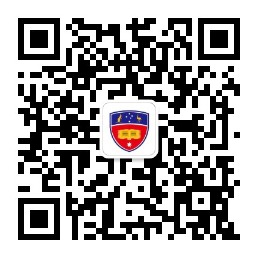The International Baccalaureate (IB) aims to help schools develop well-rounded students who possess the character to face various challenges with an optimistic attitude and an open mind, have confidence in their identity, make ethical decisions, promote our shared spirit of fraternity with others, and apply their knowledge to the complex and unpredictable situations of the real world. The IB offers four high-quality international education programs that share a dynamic vision.
According to the values described in the IB learner profile, the International Baccalaureate education:
The focus is on the learner - the student-centered IB programme promotes healthy, beneficial relationships, ethical responsibility and personal challenge;
Developing a variety of effective teaching and learning methods—the International Baccalaureate program assists students in developing the necessary attitudes and skills to succeed academically and personally;
Education in a global context - the IB programmes develop an understanding of languages and cultures, and explore ideas and issues of global importance;
Exploring Significant Content - The International Baccalaureate program offers a wide and balanced range of courses, emphasizing understanding of concepts and connections between subjects.
International Baccalaureate learners strive to become inquirers, knowledgeable, thinkers, communicators, principled, open-minded, caring, risk-takers, balanced and reflective. These qualities represent a broad range of human capacities and responsibilities that go beyond intellectual development and academic success.
"Mature international quality education"
The International Baccalaureate (IB) program, administered by the non-profit International Baccalaureate Organization (IBO), embodies the philosophy of "Education for life." It aims to develop individuals who are independent thinkers with international perspectives, lifelong learners, and active participants in global affairs.
"High-level world-class construction standards"
"IB World Schools" must undergo rigorous scrutiny by the IB Organization, meeting stringent criteria in terms of facilities, faculty, and philosophy to become officially recognized as "IB Authorized Schools." However, achieving this status is not the end of the journey. Schools are subject to ongoing oversight by the IBO and must revalidate their eligibility every five years through a comprehensive review process. Teachers, in addition to possessing impressive credentials, are required to participate annually in various types of IB training programs, ensuring that their educational philosophies and teaching methodologies remain at the forefront globally.
"Seamlessly integrated continuous curriculum system"
IB was founded in 1968 with the aim of serving international schools and facilitating the enrollment of children from families moving between countries. It has developed four international education programs that seamlessly connect globally, ensuring that children attending IB schools can adapt wherever they go in the world.
Primary Years Programme for children aged 3-12
Middle Years Programme for children aged 11-16
Diploma Programme for children aged 16-19
Career-Related Programme for children aged 16-19
"A curriculum framework that integrates Chinese and Western education, prioritizing student-centered learning"
Unlike the "score-first" approach of exam-oriented education, IB programs prioritize a "student-first" philosophy. Learning knowledge and skills is not the sole purpose of education; learning to be a good person is fundamental. Unlike some international educational curricula that advocate for Westernization, IB emphasizes preserving one's traditions, encouraging children to learn their mother tongue and to love their own culture.



